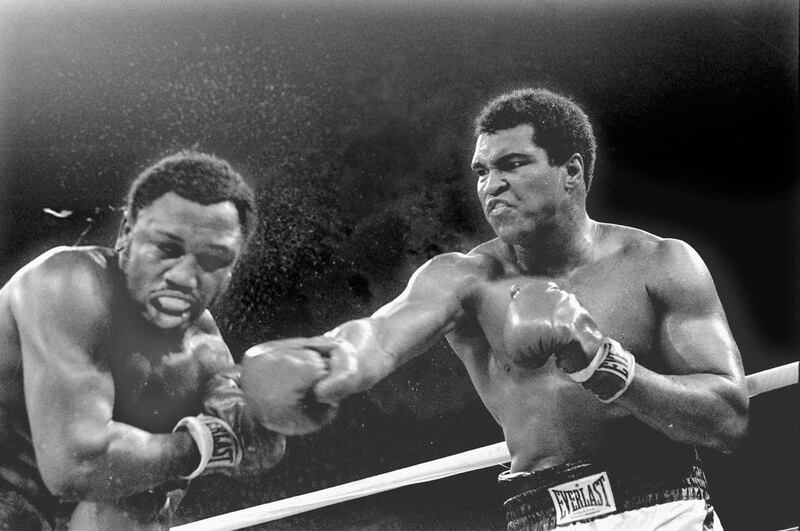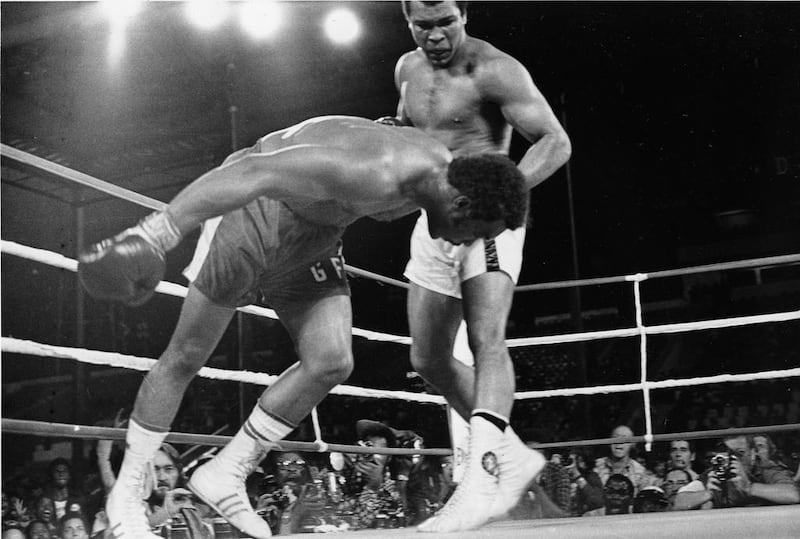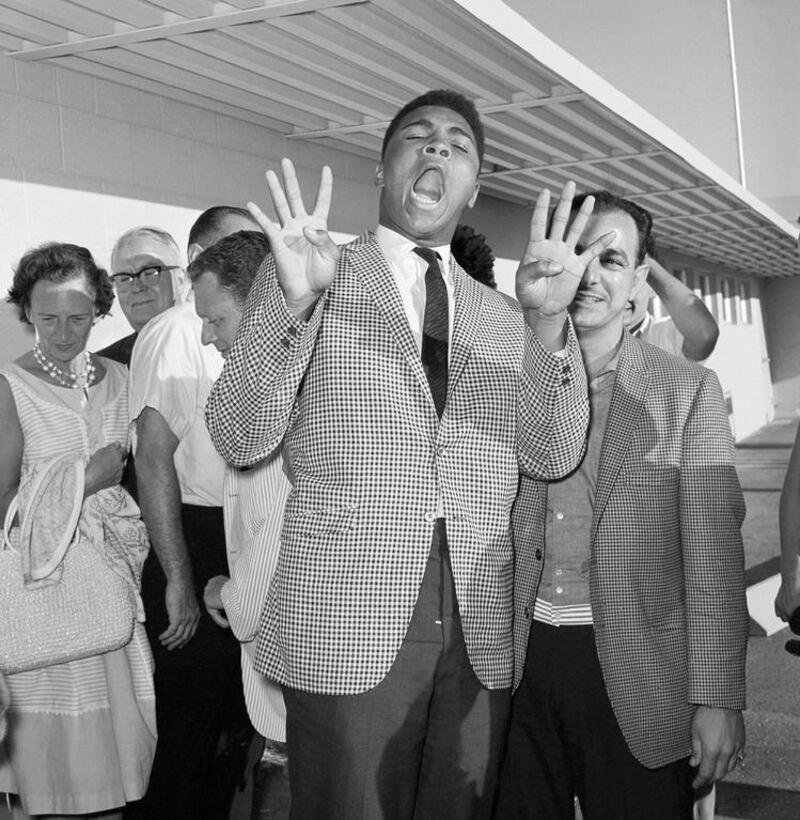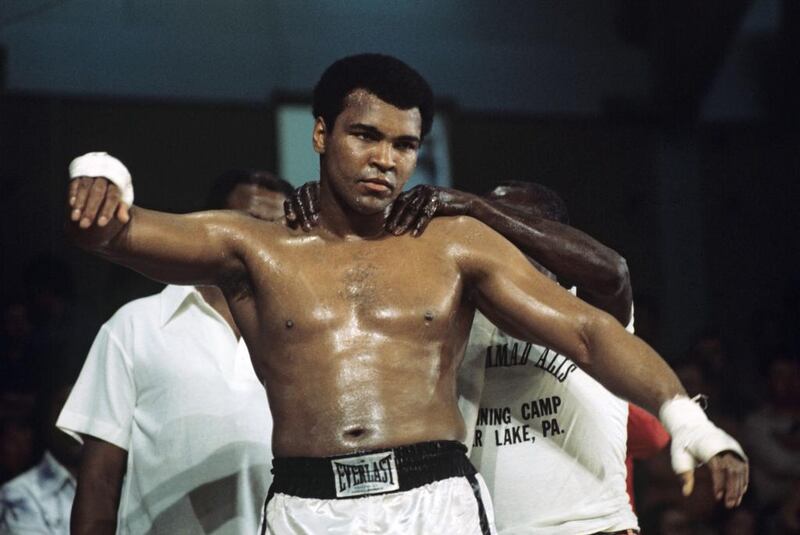It was a day that the world knew was not far away, but dreaded nevertheless.
Having spent his entire life fighting, both inside the ring and out, Muhammad Ali, who had been battling Parkinson’s disease for more than 30 years, lost his final fight early yesterday morning when he passed away due to a respiratory condition. He was 74.
Ali, born Cassius Clay, first entered a boxing gym as a 12 year old after his and his brother’s bicycles were stolen.
Ali told local Louisville policeman, Joe Martin, he wanted to “whup” the thief, to which Martin, also a boxing coach, responded by urging Ali to learn how to box first.
The rest, as we so often are told, is history.
Six years after making his amateur debut, Ali, then Clay, won the light-heavyweight gold medal at the 1960 Olympic Games in Rome at 18 years old.
Ali, still under the name Clay, made his professional debut in October 1960, and went on to amass a 19-0 record when he was given his first shot at the world heavyweight title.
Sharp as a razor with feet as light as a ballerina, Ali was not the stereotypical heavyweight fighter.
His defence was, for all intents and purposes, non-existent. He did not fight on the inside, and would lean back rather than slip punches.
He was far from a textbook operator, and kids starting out now will never be advised to emulate the Ali style. But textbooks do not apply to geniuses.
More on Muhammad Ali:
• Dileep Premachandran: Muhammad Ali leaves a shadow that spanned the world, from America to Kerala
• From the archives: Gary Meenaghan explores when Muhammad Ali visited the UAE
• Podcast: A tribute to Muhammad Ali – the most iconic of sportsmen who changed boxing and the world
Sonny Liston, on the other hand, was a stereotypical heavyweight. He was fearsome and intimidating with enough power to crumble a mountain.
Not that it bothered Ali much, with the challenger describing the champion as a “big ugly bear”, promising to “donate him to the zoo” after he beat him.
Body: Retrospectively, Ali’s trash talking – as well as his more profound quotes – have played a big part in his legacy, but at the time, it served to portray Ali as unlikeable, even hated, by certain quarters.
Jim Murray, from the Los Angeles Times, wrote at the time that Ali's fight with Liston would be "the most popular fight since Hitler and Stalin, 180 million Americans rooting for a double knockout."
Ali entered the bout as a massive outsider, with many predicting the fight would end inside the first round.
Instead, Ali went about dismantling Liston, using his hand speed and movement to unsettle Liston until the champion failed to emerge for the seventh round.
It was the first time since 1919 a heavyweight champion had lost his title by quitting on his stool. “Eat your words!” Ali aimed at the ringside press.
“I am the greatest! I shook up the world. I’m the prettiest thing that ever lived.” A superstar was born.
It was also the last time Ali fought under the name Cassius Clay, having converted to Islam.
It proved to be the first in a number of iconic fights involving Ali, but was arguably the most important, providing the launchpad that would propel Ali towards greatness, both as a sportsman and as one of the most important cultural figures of the 20th century.
Ali would go on to be involved in some of the most memorable events in boxing history.
His first bout with Joe Frazier in 1971, dubbed the “Fight of the Century”, produced 15 rounds of unrelenting boxing brilliance from both fighters that saw Frazier knock down Ali twice on his way to a unanimous points victory.
The “Thrilla in Manila” in 1975, his third and final fight with Frazier, another that will never be forgotten.
A fight that, Ali later admitted, was “the closest I’ve ever been to dying”, despite emerging victorious.
Then there was, of course, the “Rumble in the Jungle” in 1974, the most famous of Ali’s fights, against George Foreman.
Ali was, like his first fight against Liston, considered a huge underdog against a fighter considered the hardest hitter in history.
What unfolded encapsulated Ali as a fighter and a man better than any other moment of his boxing career. Deploying the now famous “rope-a-dope” tactic, Ali leant on the ropes and absorbed Foreman’s pounding shots for seven rounds.
He struck out only with stiff jabs to gradually wear his opponent down, before pouncing on a tiring Foreman in the eighth round and stopping the champion. It was a display of such remarkable self-belief, of unyielding courage, and of boxing mastery.
And to think Ali missed three and a half years in his prime due to the ban received for refusing to enlist for the Vietnam War.
What more boxing history could have been created by The Greatest in that time we will never know.
It has been said that Ali will be remembered for 10,000 things and only one of those will be boxing. That may be true given the phenomenal impact he made on the world in a social and political sense, but it will forever be boxing that provided the platform from which Ali helped affect change.
He leaves this world with a legacy that will never be matched.
[ jturner@thenational.ae ]
Follow us on Twitter @NatSportUAE
Like us on Facebook at facebook.com/TheNationalSport








